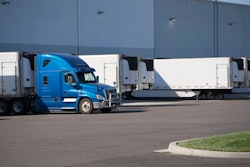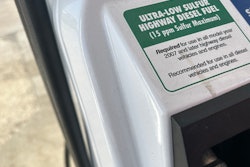The trucking industry is the backbone of modern commerce, transporting goods across vast distances to keep shelves stocked and industries profitable. This crucial sector is often faced with rising fuel costs, regulatory standards and the need to optimize efficiency.
In the midst of these challenges, technology has emerged as a key player in transforming the future of trucking, specifically GPS tracking and fleet telematics.
The constant need to maximize efficiency has propelled the trucking industry into the age of technology-driven transformation. At the forefront of this revolution is telematics; a fusion of telecommunications and informatics. In the context of the trucking industry, telematics encompasses a wide array of applications, with one of its central components being GPS tracking. This technology involves equipping vehicles with GPS devices that communicate their real-time location, speed, and other relevant data to a central system.
Enhanced fleet visibility
Knowing the precise location of each vehicle in your fleet is paramount, and GPS fleet vehicle tracking system brings forth a multitude of benefits in ways that were previously unimaginable. GPS tracking provides fleet managers with up-to-the-minute location data for every vehicle in the fleet. Fleet managers can define virtual boundaries or "geofences" on digital maps. When a vehicle enters or leaves these designated areas, the system triggers instant notifications.
Route optimization
GPS tracking systems analyze historical and real-time data to identify the most efficient routes, taking into account factors like traffic, road conditions, and delivery schedules. GPS tracking allows for accurate prediction of arrival times, enabling companies to meet delivery windows consistently.
Asset and cargo security
GPS tracking systems can alert fleet managers to unauthorized vehicle usage or suspicious activities. In the unfortunate event of theft, real-time tracking assists law enforcement in recovering stolen vehicles and assets quickly. For companies transporting perishable goods or pharmaceuticals, GPS tracking provides constant monitoring with temperature sensors integrated with tracking systems to send alerts if cargo temperatures fall outside specified ranges.
Driver safety and compliance
GPS tracking systems record a wealth of data related to driver behavior, including speed, harsh braking and acceleration. Fleet managers can use this information to provide feedback and training to drivers, promoting safer and more efficient driving practices. Electronic Logging Devices (ELDs) are a crucial component of regulatory compliance. GPS tracking systems often integrate seamlessly with ELDs, ensuring accurate and automatic recording of hours of service.










